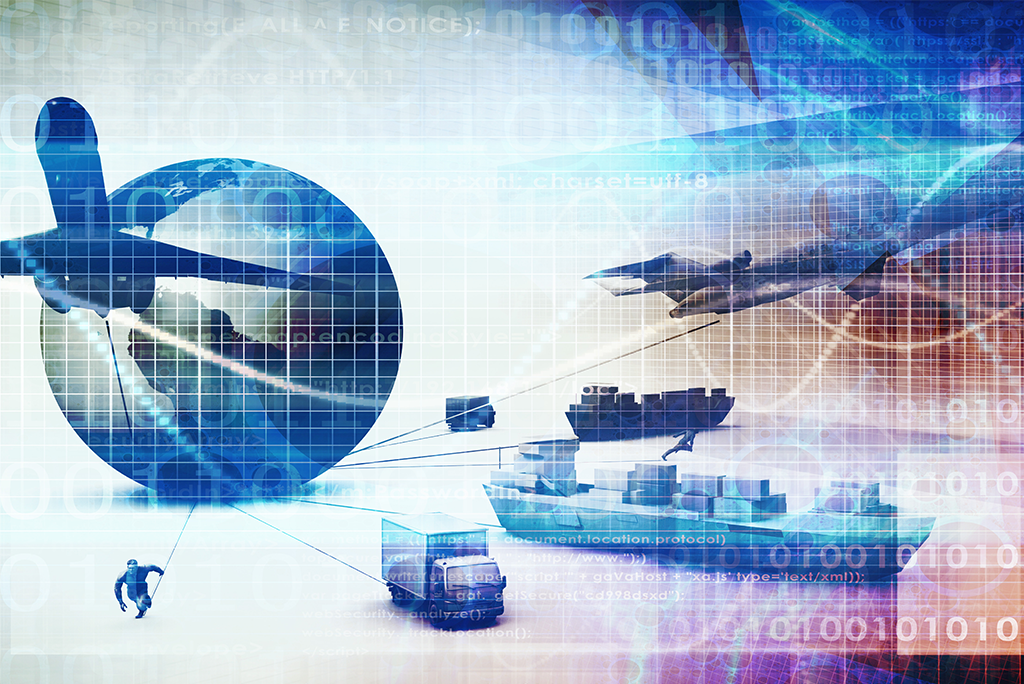
The COVID-19 pandemic triggered a dramatic shift to digital transformation as millions of employees began to work from home. Now, with pandemic disruptions suppressing global supply chains; manufacturers, ship operators and importers are switching from paper to digital transactions using blockchain technology, reports Enda Curran in Bloomberg.
As discussed in a previous post, blockchain is a decentralized digital ledger of transactions that records data in a way that prevents hacking and altering of the data. Among its many benefits, blockchain provides secure data sharing that is necessary for trade. One organization already using blockchain technology to make trade easier is Global Shipping Business Network (GSBN), a Hong Kong-based nonprofit technology consortium that simplifies trade using blockchain. Its product Cargo Release has reduced the process of physical document exchange at Shanghai port from as many as three days to just two hours.
“There’s no more people going to a shipping line counter to present documents,” GSBN Chief Executive Bertrand Chen told Bloomberg.
How Blockchain Creates Transparency in the Food Supply Chain
Blockchain is doing more than helping companies cut back on paperwork. It’s also creating better transparency, safety, and traceability, according to Maclean’s. Particularly within the food supply chain, blockchain’s digital ledger provides consumer insight into the products they purchase from farm to table. Before they find their way into kitchen pantries, food products make their way through a long chain of stakeholders: farmers to truckers to manufacturers to importers and exporters to government agencies to grocery stores. If anything goes wrong, such as a food recall, locating the offending product can be near impossible. As a result, producers and suppliers in these situations are often forced to throw away the entire product inventory, constituting an enormous waste.
However, Erik Valiquette, president of the Canadian Blockchain Supply Chain Association, told Maclean’s that replacing the current process with a blockchain-enabled system that can store “timestamped activity and verify transactions throughout the food supply chain,” in conjunction with “artificial intelligence, robotics, scanners and the internet of things” will create a more “efficient and transparent” infrastructure.
How Blockchain Prevents Fraud in the Supply Chain
Blockchain can also reduce and prevent fraud. As various stakeholders input data along the supply chain, any inaccurate or fraudulent data is tracked and stored, which can be used to hold accountable anyone who inputs bad information. This accountability makes altering or melding with product data much more difficult.
“All players will be forced to take a step back, look at their processes and make sure that the data-entry mechanisms are accurate,” says Valiquette. “Will that keep an actor from putting in bad information? Probably not. But by automating certain processes, talking with industry partners, and building a system together, the chances of bad information are greatly reduced.”
The global supply chain’s adoption of blockchain is just taking off. As companies continue to struggle, the need to integrate this emerging technology into the supply chain will only become greater.
Preparing Your Industry for Blockchain Technology
In addition to the supply chain, many fields can benefit from distributed ledger technology. Check out Enterprise Blockchain for Healthcare, IoT, Energy, and Supply Chain to learn about highly anticipated use cases.
Developed by leading experts in blockchain technology, this five-course program is ideal for managers, professional engineers, and business leaders.
Contact an IEEE Content Specialist to learn more about how this program can benefit your organization.
Interested in getting access for yourself? Visit the IEEE Learning Network (ILN) today!
Resources
Curran, Enda. (15 November 2021). Blockchain to Ease Logjams as Supply Chains Ditch Paper for Digital. Bloomberg.
Sing, Nathan. (11 November 2021). How blockchain could revolutionize food supply chains—and lower your grocery bill. MacLean’s.


[…] to extend, if not make permanent, their fully remote or hybrid office plans. Furthermore, pandemic-related supply chain snags will continue, and possibly worsen, in coming […]
[…] chains: The global supply chain is notorious for being difficult to navigate and monitor. This problem often leads to goods being […]